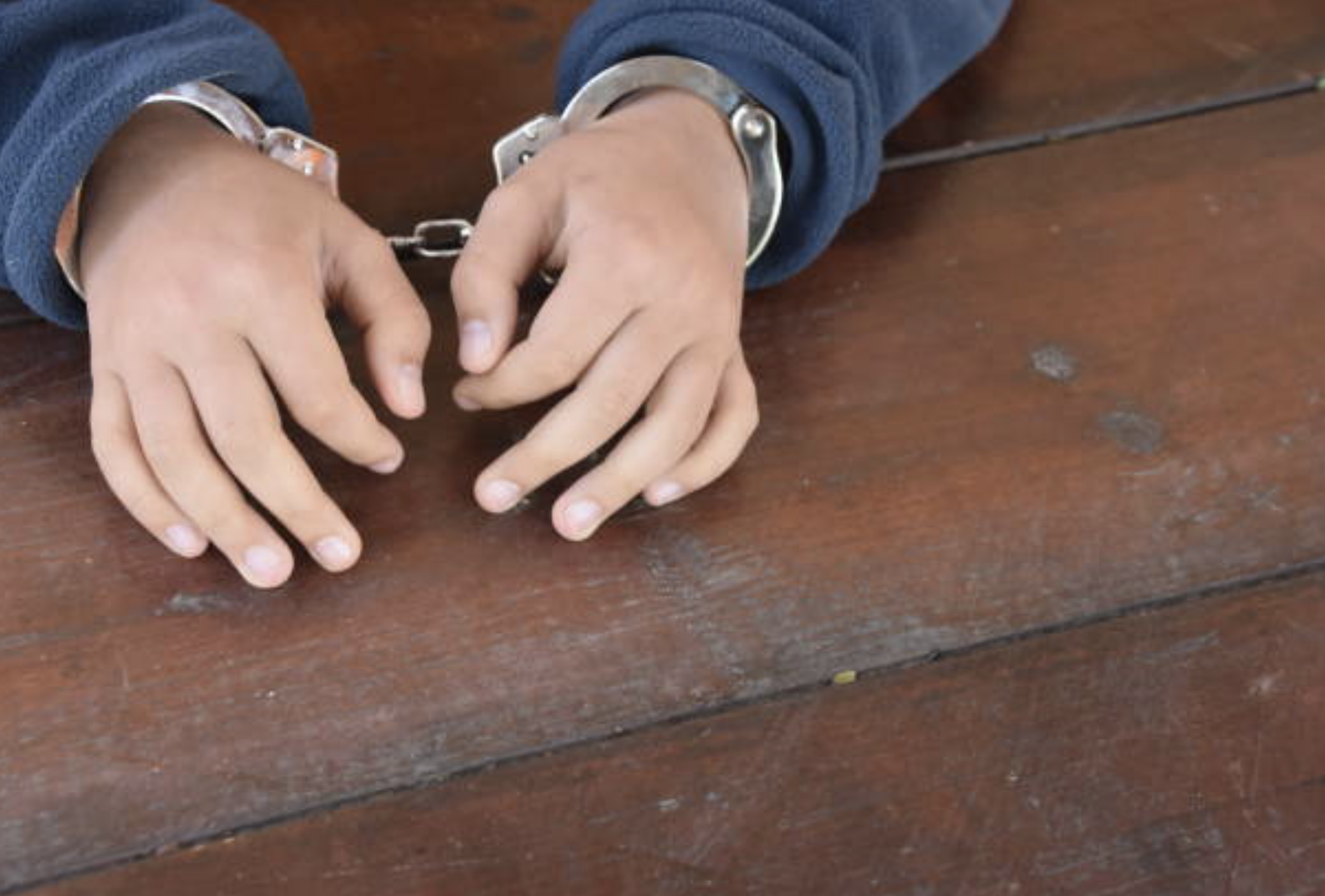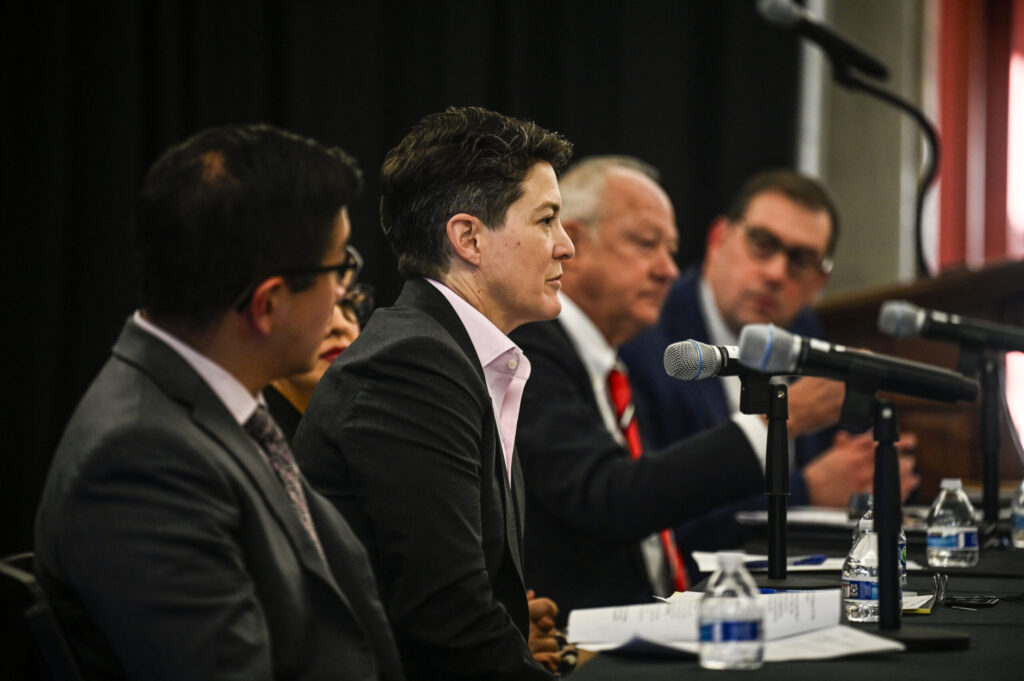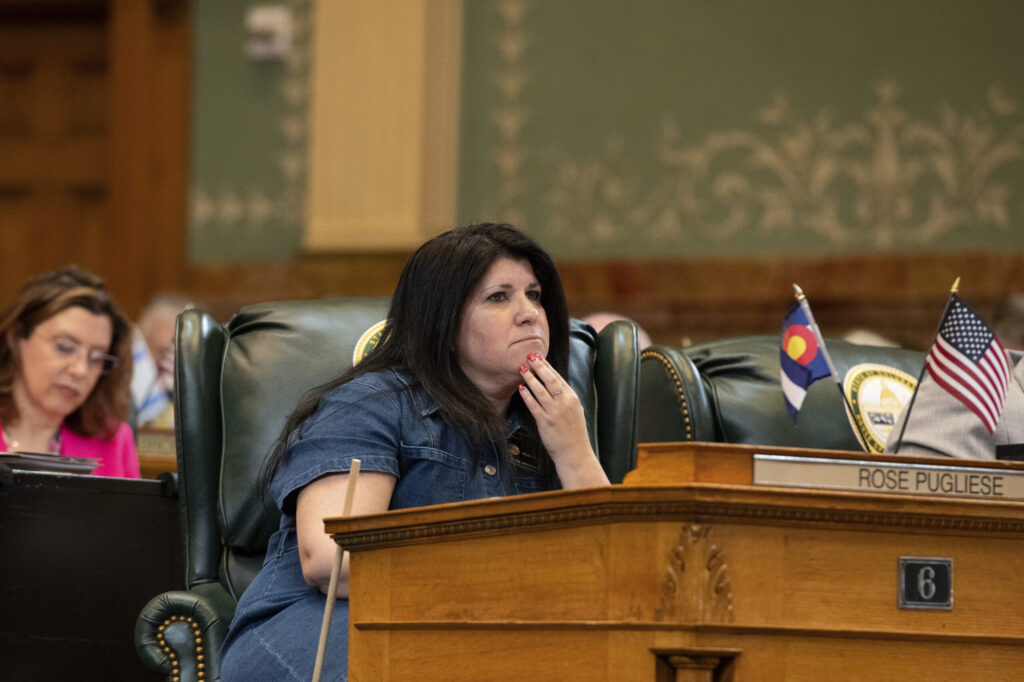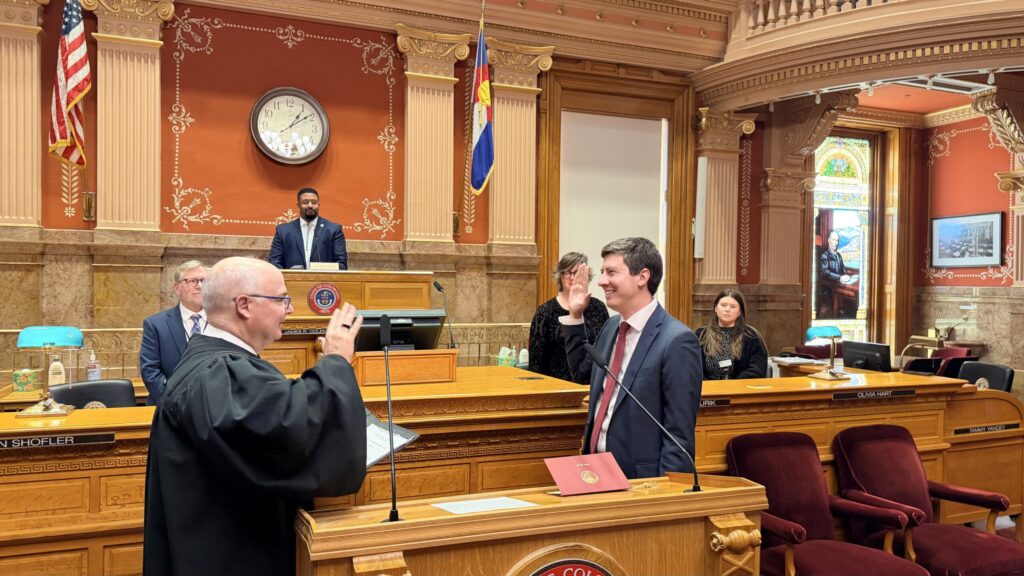Rewritten bill strips out Colorado’s effort to increase minimum age to criminally charge kids
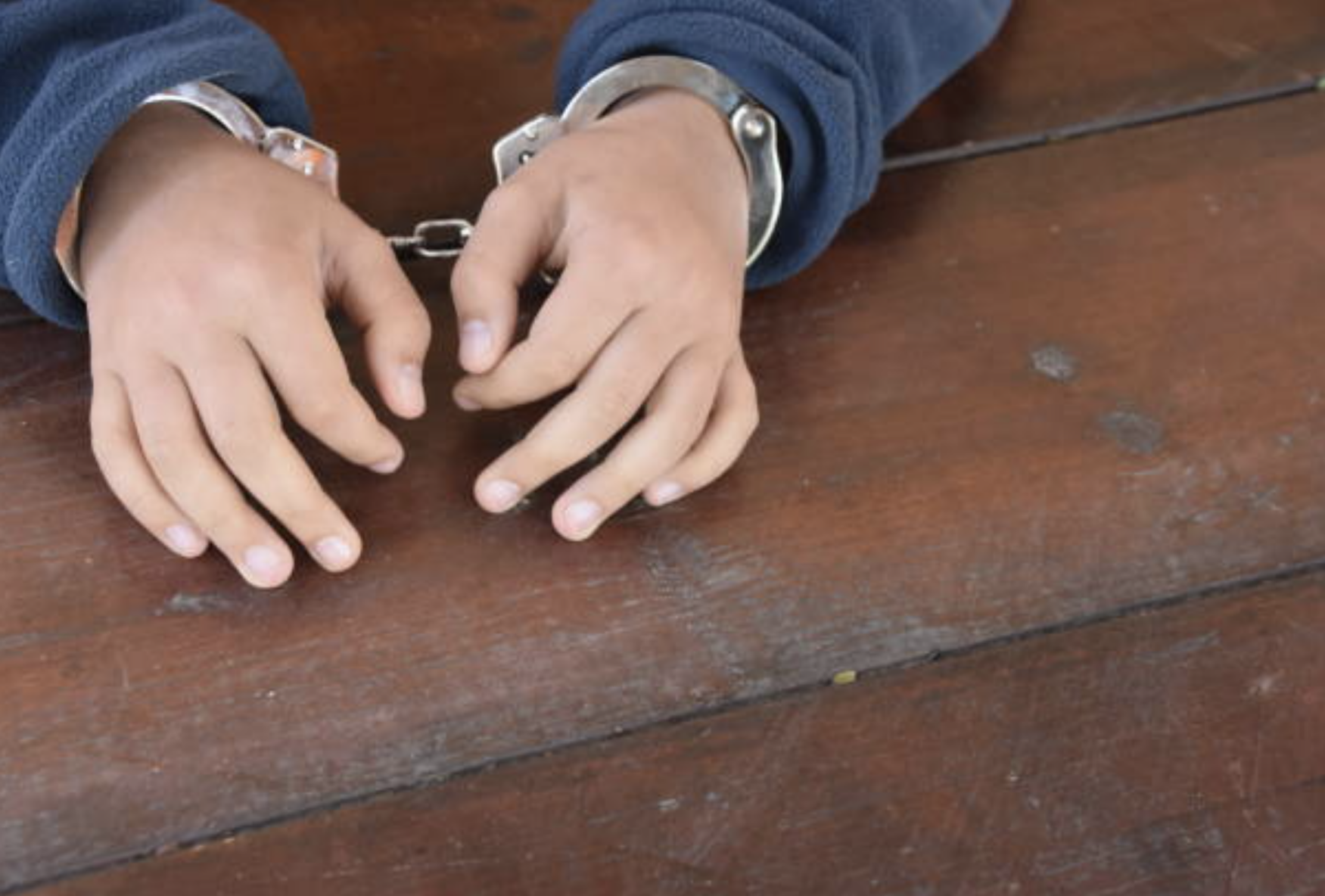
For the second year in a row, Colorado legislators passed a proposal originally intended to stop charging children under 13 with most crimes. But the legislation is once again heading to Gov. Jared Polis’ desk without that key provision.
The minimum age for criminal prosecution in Colorado is 10. As drafted, House Bill 1249 sought to raise the age to 13, except when a child is suspected of committing homicide. The bill cleared the House, but hit a wall in the Senate.
Senators on Sunday gutted the bill after days of debate, removing the change in minimum prosecution age. The chamber replaced that provision with funding for the collaborative management programs (CMPs) the bill would have referred child offenders to in lieu of the juvenile justice system.
The rewritten version of the bill passed the legislature on Monday, now only needing the governor’s approval to become law.
“Throughout session, we’ve had children inside and outside of these halls crying out for assistance, for action, and for their voices to be heard. And today, I feel like I failed them,” said bill sponsor Sen. James Coleman, D-Denver. “The juvenile justice system is a pipeline to prison. … We must do better, and I know that we can. In the meantime, the strike below is our attempt to do the most immediate good for young people with the funding that’s available.”
Proponents of the original bill said arresting children does not address the cause of crime and sets them up for failure in the future, while opponents argued that serious crimes require serious criminal consequences, regardless of the perpetrator’s age.
Under the original bill, children aged 10 to 12 who commit crimes would be referred to their local CMPs to get resources, such as therapy or family counseling. It would have also increased the minimum age when a child can be tried as an adult from 12 to 14 years old, and limited charging minors as adults to cases of class 1 or 2 felonies or crimes of violence.
After passing the House in a 40-25 vote, the bill went to the Senate where lawmakers debated on the floor for around 10 hours over three days.
During the debates, bill sponsors made 15 amendments to the bill before eventually rewriting it completely, including adding exemptions for felony sex crimes, violent crimes causing serious bodily injury and attempted murder with a gun. Critics said those changes were not enough, saying the use of CMPs to provide services to child offenders is impractical.
“In my district, I have three counties that don’t have CMPs,” said Sen. Bryon Pelton, R-Sterling, who opposed the bill. “The CMPs that we do have, we’re overloaded with child welfare as it is. … We had 68 kids taken from their families due to drugs. It was hard in our county to be able to find those services for those kids. Adding to it with the CMPs, it’s just going to overload us.”
Three days before the bill was gutted, several law enforcement leaders and the Colorado Association of Chiefs of Police rallied at the Capitol to advocate against the bill.
Those opponents argued that the bill will incentivize criminal organizations and gangs to seek out children, particularly 12-year-olds, to commit crimes.
In 2021-22, 63 children under 13 were admitted into detention, accounting for 2.4% of new inmates, according to the Colorado Division of Youth Services. Of the 63 children, 58 were admitted for felony charges.
“This bill will have the exact opposite effect of what we’re trying to accomplish,” said Aurora Police Chief Art Acevedo. “Young people are being used, are being manipulated, they are being used as tools to commit violent crimes, property crimes and to victimize the people of Colorado by older youth and by adults.”
The rewritten bill would increase funding for CMPs by more than $2.3 million for training and services for children who have had contact with law enforcement, are at risk of becoming involved with the juvenile justice system, or would otherwise benefit from services. It provides $2 million to help counties without CMPs set them up, though counties are not required to do so.
The rewritten bill would also allow several agencies, including law enforcement and schools, to refer children to CMPs.
The programs must report annually the number of juvenile offenders they serve, as well as their age, demographics, referrals, services and outcomes. And it requires district attorneys to annually report the number of 10- through 12-year-olds who were charged with criminal offenses or participated in diversion programs.
Senators approved the rewritten bill in a 31-4 vote on Monday. The House re-passed it, 52-13.
Proponents of the bill said they hope the new policy will lay the groundwork for another try at increasing the minimum age for criminal prosecution, by expanding the capacity of CMPs and getting more information about how young children are best served to improve community safety.
“It’s giving us the ability to take that data in future legislative sessions and craft more specific policy about how to improve outcomes for 10-, 11- and 12-year-olds, and ultimately for society,” said bill sponsor Sen. Cleave Simpson, R-Alamosa. “There’s still an abundance of work to be done. I’m committed to continue in that space.”
The bill’s journey is very similar to the first legislative effort to increase the minimum age of criminal prosecution from 10 to 13. House Bill 22-1131, passed last year, was downgraded to a study to develop recommendations for how to better serve 10-, 11- and 12-year-olds who commit crimes without putting them in the criminal justice system.
HB 1249 aligned with many of the recommendations made from the study, earning the bill bipartisan sponsorship. Last year, HB 22-1131 had exclusively Democratic sponsorship and received only two “yes” votes from Republican lawmakers, even after it was rewritten to be a study.
Both this year’s HB 1249 and last year’s HB 22-1131 were sponsored by Rep. Serena Gonzales-Gutierrez, D-Denver.
Gonzales-Gutierrez said HB 1249 initially had the votes to pass the Senate but, as the second reading debate on the bill was laid over four times, opposition used the extra time to flip some of the bill’s supporters.
“Politics won out over kids today, and that is shameful. I feel shameful. This is politics at its worst,” Gonzales-Gutierrez said. “This bill was a chance for us to show and teach our kids that they are worth it, that they are valued, that they can be something, and that their circumstances do not have to define their future.”
In Colorado, just under 60% of youth who are committed reoffend within three years of release, according to a 2022 report from the Colorado Division of Youth Services.
Arrested children are more likely to be arrested as adults, less likely to graduate high school, more likely to be unemployed and face a higher risk of violence and sexual abuse while in detention, bill sponsors said. One study found that up to 90% of people in the juvenile justice system have experienced trauma, including high rates of physical or sexual abuse.
Children of color are arrested at disproportionately high rates. In 2021, Black children made up just over 5% of Colorado’s 10- to 17-year-old population, but constituted 23.8% of those detained in 2021-22, according to the Colorado Division of Youth Services.
Gonzales-Gutierrez is leaving the state legislature, having been elected to the Denver City Council. But she said she hopes her colleagues will continue to fight to stop criminally charging children under 13.
“I need other people to carry on this work because this work is really important,” Gonzales-Gutierrez said in tears. “When I came to this building, one of the biggest things I wanted to do is help break down systems of oppression. Systems that were built to oppress people of color. Doing this bill for the last two years has been something that is incredibly important to our community.”
The bill’s other sponsors – Coleman, Simpson and Rep. Ryan Armagost, R-Berthoud – all said they are committed to readdressing the issue in the future, though advocates for the bill said they are unsure whether another version will be introduced next session.
